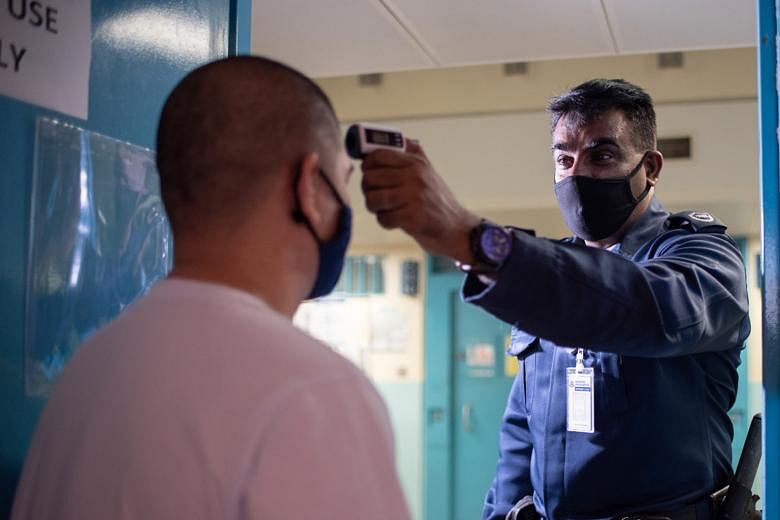The Covid-19 pandemic and the various safe management measures implemented to curb it have impacted the whole of society, sparing no one including prison inmates.
Help groups and religious social service agencies, which were able to enter prisons and conduct weekly sermons and social counselling before the start of the circuit breaker period, could no longer do so.
But the Singapore Prison Service (SPS) has been working with volunteer groups and agencies like Family and Inmates ThRoughcare Assistance Haven (Fitrah) and Prison Fellowship Singapore (PFS) to ensure that inmates continue to be engaged in rehabilitation programmes.
Volunteers substituted pre-recorded video sermons and worksheets for inmates for the weekly sessions they could no longer hold in person.
Mr Chua Kok Wan, executive director (designate) of PFS, said he was initially sceptical of the video sermons, considering them a "far cry from the real thing".
"But surprisingly, we got a lot of feedback from the inmates, complimenting us on the videos," he said.
Fitrah and PFS are now keeping in touch with inmates via e-mail and by phone on an ad hoc basis, with assistance from SPS.
Mr Syahrin Mohd Salleh, manager at Fitrah, recalled that during this year's Ramadan, SPS facilitated a phone call with an inmate who needed religious advice.
"He was on medication and the doctor had advised him not to fast. So he wanted to know how he should go about this," said Mr Syahrin.
Since phase one of Singapore's reopening on June 2, some core rehabilitation programmes, such as academic classes, gradually resumed - and more will follow - with safe management measures in place, SPS told The Straits Times.
But inmates now face more difficulties.
The number of jobs available to former offenders has declined, said Mr Marc Chong, senior assistant director of careers at Yellow Ribbon Singapore (YRSG).
Previously, YRSG had about three job choices per inmate, but this has dropped to two since the outbreak, said Mr Chong.
Some inmates have said they are keen to take up Covid-19-related jobs such as swabbers and swabbing assistants, said Mr Chong.
"We had one client mention that he wanted to contribute to the nation at this time, and I was glad to hear responses like this," he added, saying that YRSG will facilitate inmates' applications and advise them on the risks involved.
Job placement exercises, which used to involve face-to-face interviews, are now being held over video or phone calls.
Skills training programmes, however, have yet to resume.
Last Thursday, a fourth newly admitted inmate tested positive for Covid-19.
The other three and a nurse at Changi Prison Complex had tested positive in April and last month but have since recovered.
All five cases are unlinked.
New inmates are segregated from the general population for 14 days and tested for Covid-19 at the start and end of the segregation period.
Those who test positive are isolated from the rest of the newly admitted inmates and housed in a separate prison facility.
Prison staff are required to take their temperature twice daily. Front-line officers are issued personal protective equipment such as disposable masks and gloves for when they interact with newly admitted inmates and suspected cases.












